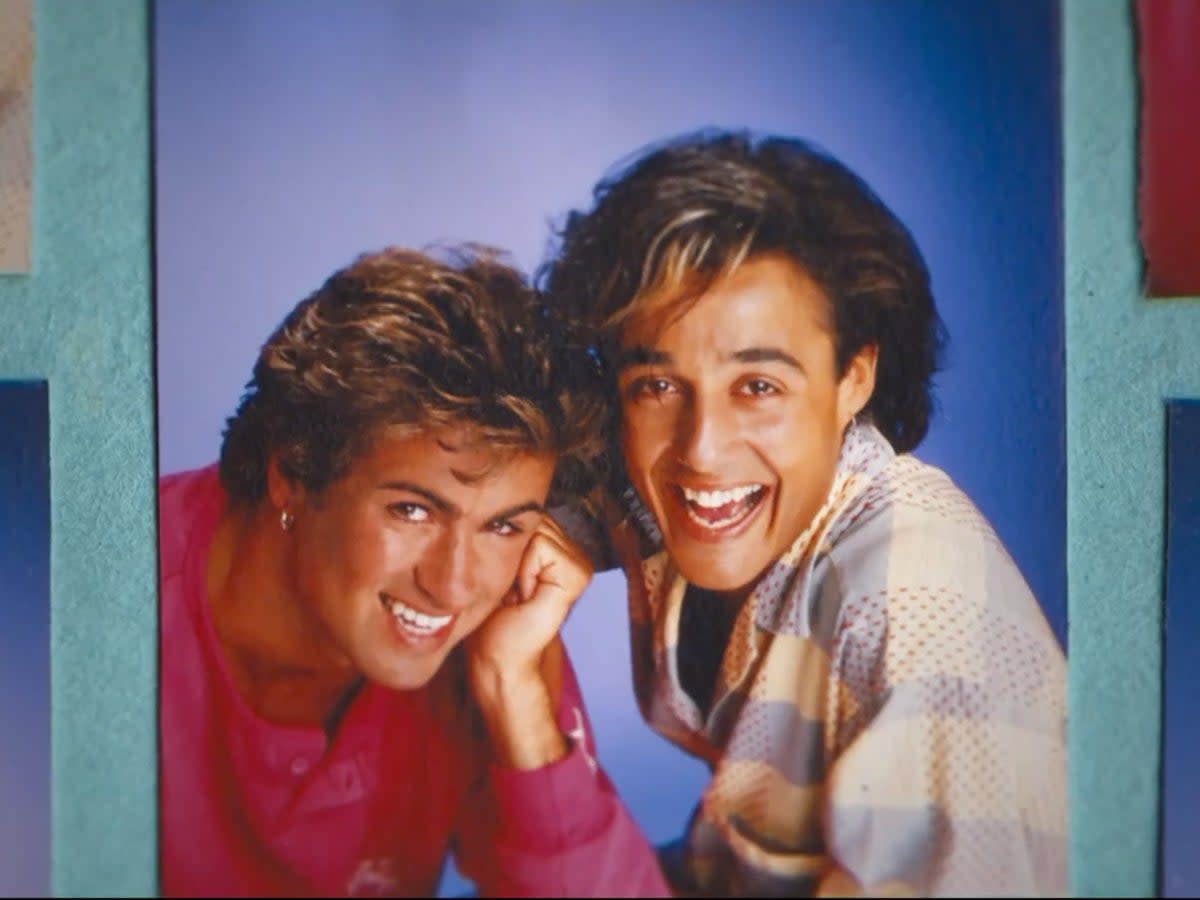Wham! review: Netflix doc is a missed opportunity that plays like a greatest hits album

From Michael Jackson to Whitney Houston, Madonna to Prince, the 1980s were the decade in which pop became a visual product. Leather jackets, high-waisted trousers, dramatic headbands; it was as much about the fashion as the music. It might’ve been strange, then, to see one of the biggest acts of the Eighties emerging from suburban Hertfordshire. These two gawky teenage boys, sons of immigrant families, would become a sensation among adolescent girls and, 40 years on, the subject of a glossy new Netflix documentary.
Wham! is the story of – you guessed it – Wham!, the pop duo consisting of Georgios Panayiotou, aka George Michael, and Andrew Ridgeley, aka the one who isn’t George Michael. Over the course of four eventful years, Wham! went from being an obscure teeny-bopping act to one of the premier draws in music. Naturally, this short, brightly burning career came with a bit of emotional turbulence along the way. “The human, unpredictable mess,” says Michael in voiceover. “All of it was pop.”
The most important thing to say about Wham! is that this is the story of Wham!, not George Michael. Of course, the two things intersect, and the transition of the teenaged and insecure Georgios (“Yog”, as Ridgeley calls him) into George, the international superstar, is at the heart of the drama. But Ridgeley, who collaborated closely with the filmmakers to provide a new audio interview for the film, is as much a player in this narrative as his storied counterpart. His voiceover interrupts, contradicts and corroborates the archival testimony of his partner in crime. As the limelight falls on Michael, Ridgeley retreats to the shadows.
As music documentaries go, Wham! is about as mainstream as they come. All the hits get played, from “Club Tropicana” and “Careless Whisper” to “Don’t Let the Sun Go Down on Me” and “Wake Me Up Before You Go Go”. In fact, the film is almost exclusively concerned with the music and performances. Seemingly important details like Michael’s upbringing in the Cypriot diaspora (or Ridgeley’s in the Egyptian one, for that matter) are elided in favour of skipping to the hits. Even when the pressing importance of Michael’s sexuality becomes more relevant to the historic trajectory of Wham!, the film refuses to foreground the human element. “If your goal is to become the biggest selling artist of that year,” Michael says in voiceover, “you’re not going to make life difficult for yourself, are you?”
The result is a fairly linear romp through the Wham! back catalogue, an effect that could’ve been achieved on Spotify or with their 1997 album, The Best of Wham!. And while there’s plenty of effective pop music on display, Wham! were hardly The Beatles or The Beach Boys, Elton John or David Bowie. Unless you’re someone who filled arenas in the 1980s, waiting for the chance to receive a sweat-drenched shuttlecock fired into the crowd by George Michael, you’re unlikely to be intrigued by the power of the music alone. The film gives little to no consideration to the craft of songwriting, the graft of touring, the physical endurance of choreographed dancing. Instead, the focus is on how one hit led to another and, over the years, Michael and Ridgeley, amicably, drifted apart.
In the film’s final chapter, Wham! head to China on a historic tour. “In Peking last night it was a two-man cultural revolution,” an American news report declares, as the veil of secrecy over communist China is cracked open an inch by the bubbly effervescence of Wham!. In itself, this landmark tour could’ve provided material for a documentary that told the parallel stories of the rise of Wham! and the end of the Cold War – like John Adams’s opera, Nixon in China, for the modern era. Here though it is presented as another fleeting instalment on the whistlestop Wham! timeline. Not every film has to be politically engaged, but the inclusion of this pop culture moment rather overshadows observations about the colour of sportswear (Ridgeley = red, Michael = yellow) or length of mullets (“you can barely see the people for all the hair”).
“I didn’t know what being George Michael truly meant,” says Ridgeley, at the film’s conclusion, and it’s hard not to feel that the audience are equally marooned. While Michael’s struggle with his sexuality runs through the tale of Wham!, his substance abuse issues, legal troubles, and early death are not so much as hinted at. In trying to limit the scope – and offer Ridgeley his moment in the sun – Wham! inadvertently becomes a music documentary without much interest in music. Like the band themselves, this is a breezy watch, but if there’s profundity beneath the perms and the cut-offs, the film struggles to find it.
Dir: Chris Smith. 12A, 92 minutes.
‘Wham!’ is streaming on Netflix


